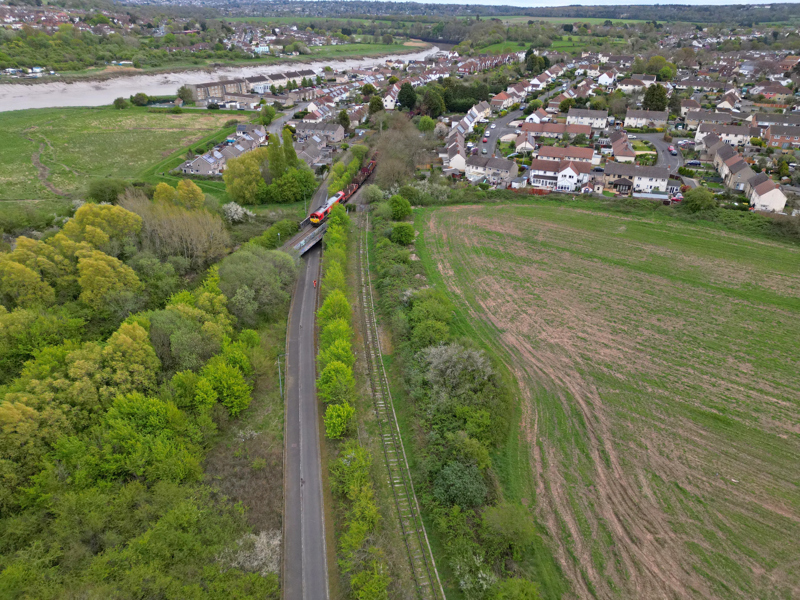
The Government has announced the approval of the reopening of the railway between Bristol and Portishead as its headline rail project following the Spending Review.
The Department for Transport (DfT) has said it will invest £27 million into the scheme to reinstate an hourly passenger service along the route for the first time since 1964.
The West of England Combined Mayor Authority announced in February that work on the 8.5-mile-long branch was due to start this summer with the aim of starting services in late 2027.
Welcoming the announcement of the final piece of funding, the West of England Mayor’s office said it would allow the route to reopen in 2028 after mobilisation this autumn and work starting in spring/summer 2026.
The reopened line will include new stations at Portishead and Pill.
More than 50 road and rail schemes are being supported. DfT said this is backed by more than £92 billion from the Spending Review settlement.
Other projects include new stations at Wellington and Cullompton on the Bristol-Exeter line, as well as a new station at Haxby between York and Scarborough.
The Midlands Rail Hub will also receive funding for projects which is thought to include new a West Chord at Bordesley, just east of Birmingham city centre.
The government also refers to the East Coast Main Line digital signalling programme.
The full list of schemes will be published on Tuesday after Transport Secretary makes a statement in the House of Commons.
So far, the projects announced are all under way or have already been announced/confirmed.
Ben Plowden, Chief Executive of Campaign for Better Transport, welcomed the Portishead confirmation.
He said: “This line was one of the projects under the Government’s hastily cancelled Restoring Your Railway Fund - also responsible for the successful Northumberland Line reopening - which we have urged the Government to reinstate to ensure other key reopening projects can also move forward.”
However, he said the group was “disappointed many more road schemes are being given the go ahead”.
“The best way to ease congestion, cut journey times and bring greater access to jobs and opportunities across the country is not by building more roads. It is by prioritising public transport and reducing future car dependency by putting new housing in the right place where it can be connected to public transport, walking and cycling networks from day one,” he said.















Login to comment
Comments
No comments have been made yet.